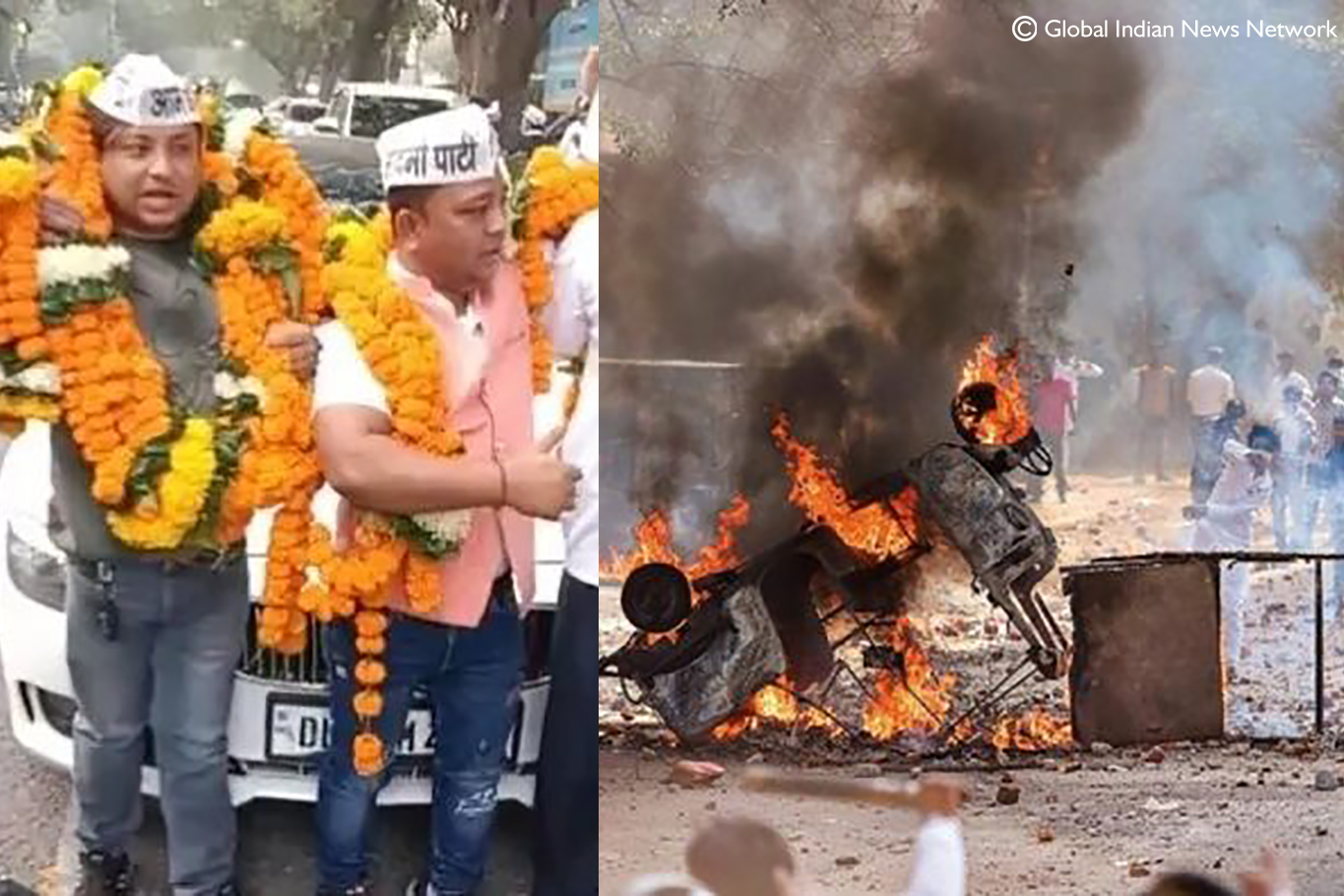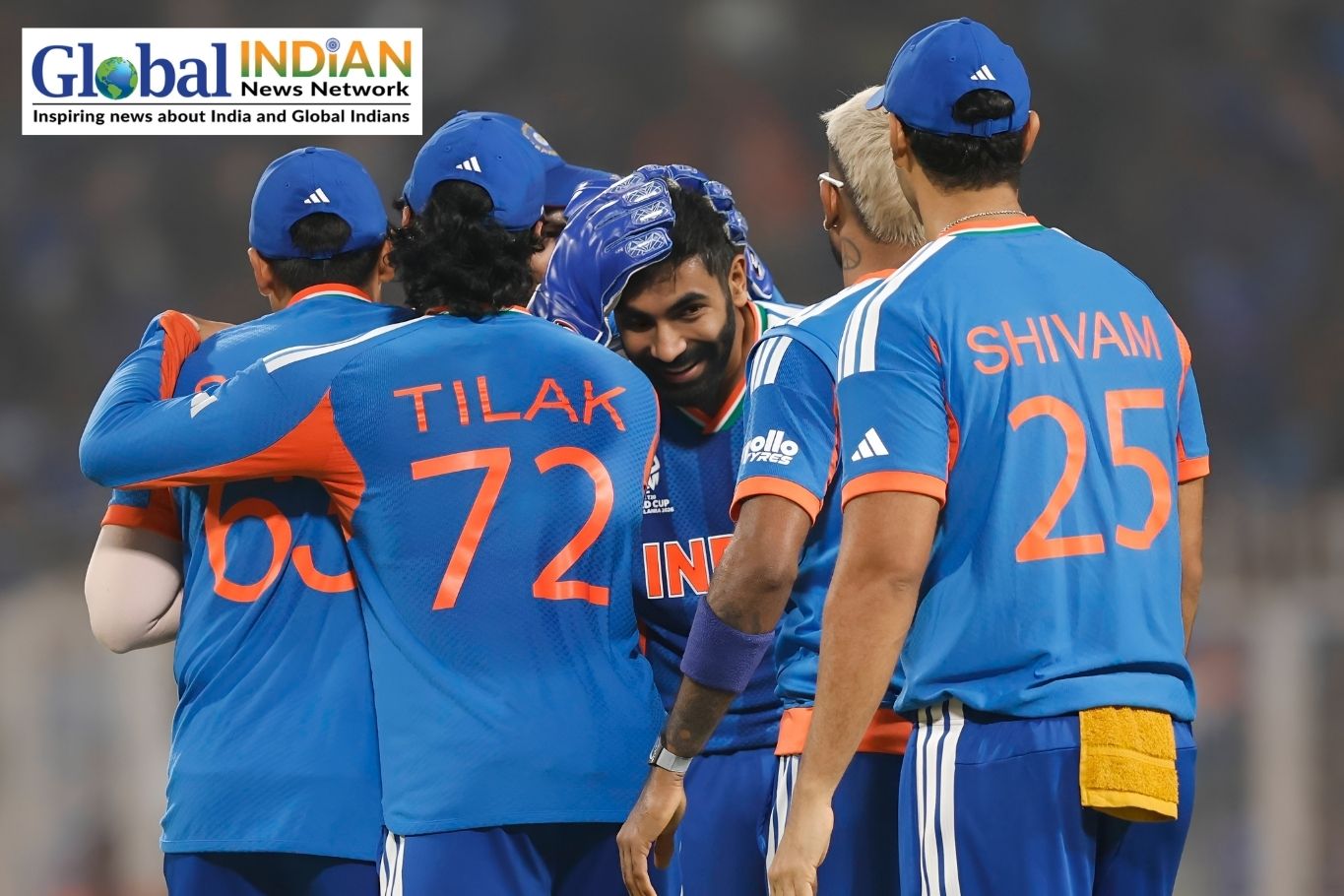 OpIndia accessed the FIR on August 4, 2023, detailing the brutal killing of Bajrang Dal activist Pradeep Kumar. Kumar’s death marked the third Hindu casualty in Islamist violence that shook Haryana on July 31, triggered by an attack on a Hindu procession in Nuh district.
OpIndia accessed the FIR on August 4, 2023, detailing the brutal killing of Bajrang Dal activist Pradeep Kumar. Kumar’s death marked the third Hindu casualty in Islamist violence that shook Haryana on July 31, triggered by an attack on a Hindu procession in Nuh district.
Pawan Kumar, a fellow Bajrang Dal activist accompanying Pradeep Kumar during the attack, filed the FIR. He identified Javed Ahmed as the primary accused. OpIndia’s report presented substantial evidence linking Javed Ahmed to the Aam Aadmi Party (AAP).
Javed Ahmed, an AAP leader, reportedly led the Islamist mob responsible for Pradeep Kumar’s death during the Nuh violence. The FIR, filed due to Pradeep Kumar’s murder on the night of July 31 to August 1 while he returned from the police station during the Nuh violence, indicated that the mob launched the attack on Pradeep Kumar and other Bajrang Dal members based on Javed Ahmed’s orders.
Pawan Kumar noted that Javed Ahmed, leading the mob, commanded, “Kill them all, I will take care of the consequences.”
According to the FIR, around 20-25 Islamists armed with various weapons responded to Javed Ahmed’s call and attacked the group, including Pawan Kumar and other Hindus.
Since the FIR only identified the accused, OpIndia engaged with the complainant Pawan Kumar to gather more information. Pawan Kumar verified that Javed Ahmed was indeed an Aam Aadmi Party leader from Haryana’s Sohna constituency. Pawan Kumar asserted that Javed Ahmed orchestrated the crowd and urged them to launch a deadly attack on Pradeep Kumar and other Bajrang Dal activists.
Pawan Kumar confirmed that the Islamist mob reacted to Javed Ahmed’s call and assaulted defenseless Hindus, chanting slogans like “Allah hu Akbar” and “Pakistan Zindabad.”
Asked about the AAP leader’s involvement, Pawan Kumar affirmed, having recognized Javed Ahmed due to frequent sightings of him and his family in Haryana’s Sohna district.
The emergence of AAP leaders as primary instigators of violence is not unprecedented. Instances like the 2020 Delhi anti-Hindu riots, the 2022 Jahangirpuri riots, and the 2015 attack on the Delhi Burari police station have revealed AAP leaders as masterminds behind anti-India, anti-Hindu incidents. Despite initially portraying themselves as champions of peace and anti-corruption, the party’s leaders have shifted towards divisive agendas, contradicting their earlier positions.
AAP Involvement in 2020 Delhi Anti-Hindu Riots: Unveiling Tahir Hussain’s Orchestrated Violence
During February 24th and 25th, 2020, Delhi experienced extensive anti-Hindu riots, which culminated from animosity fostered by anti-CAA protests, particularly in areas like Shaheen Bagh. Violence erupted in parts of northeast Delhi, including Shahdara, Maujpur, Bhajanpura, and Brahmapuri, resulting in 53 fatalities and over 200 injuries.
The riots caused significant property damage and witnessed distressing events, such as the murder of an Intelligence Bureau Constable and a Delhi Police Head Constable. A Hindu man, Dilbar Negi, was brutally killed as well.
Investigations revealed that Tahir Hussain, a member of the Aam Aadmi Party and sitting councilor in EDMC, played a central role in orchestrating the February 2020 anti-Hindu riots in Delhi. According to a Delhi Police charge sheet, Tahir Hussain led the violence from his house and mosque, which ultimately led to the murder of IB officer Ankit Sharma.
Earlier, OpIndia reported Tahir Hussain’s disclosure statement admitting he had utilized his house as a launchpad for the riots. Allegedly, he and his followers hurled stones, acid packs, petrol bombs, and more from the rooftop of his house. The fact that the house was a high-rise under construction facilitated the collection of projectiles without arousing suspicion.
As preparations for the riots ensued, Tahir Hussain urged his supporters to be prepared for all eventualities and to disable nearby CCTV cameras to prevent capturing evidence of the riots.
Tahir Hussain also confessed that the extremist Islamic group Popular Front of India (PFI) assisted him in planning and raising funds.
Apart from Tahir Hussain, Aam Aadmi Party MLA Amanatullah Khan emerged as a key instigator of the 2020 Delhi anti-Hindu riots. Amanatullah Khan was present at the site where the violent protests against the Citizenship Amendment Act escalated in Delhi’s Jamia Nagar in December 2019.
In March 2020, AAP MLA Amanatullah Khan defended Tahir Hussain, emphasizing Muslim victimhood and asserting Tahir Hussain’s innocence, suggesting he was being framed due to his religious faith.
Jahangirpuri Riots and Involvement of AAP
On April 16, 2022, an Islamists’ attack disrupted a peaceful Hanuman Jayanti procession in Delhi’s Jahangirpuri area. Ansar Sheikh and an accomplice halted the procession near the Jama Masjid, sparking an argument that quickly escalated into stone-pelting and a stampede. Despite police attempts to regain control, the Islamists set vehicles on fire, hurled stones and glass bottles at Hindu devotees. A viral video showcased Islamist Sonu Chikna firing shots during the procession.
Ansar Sheikh emerged as the primary instigator of the violence in Jahangirpuri, with subsequent evidence suggesting ties to the Aam Aadmi Party. Social media photos depicted Ansar garlanded by people while wearing the Aam Aadmi Party cap.
Conviction of AAP MLAs for 2015 Rioting and Instigation
On February 2, 2015, a mob attacked the Burari police station in north Delhi, assaulting policemen and causing property damage.
Last year, Delhi’s Rouse Avenue Court convicted two Aam Aadmi Party MLAs, Akhilesh Pati Tripathi and Sanjeev Jha, along with 15 others, for their participation in a mob attacking the Burari police station in 2015. The court highlighted the significant roles of both AAP leaders in provoking and instigating the crowd.
These MLAs were part of the mob that targeted police officers at the Burari police station in February 2015, alleging police inaction in a kidnapping case. The mob demanded custody of the accused for personal action, and when denied, they attacked the officers on duty.
The court emphasized that the two MLAs were not merely part of the mob, but actively encouraged and fueled its actions. Witness testimony indicated that the MLAs and their supporters asserted, “It’s time to teach the police a lesson,” as documented in the court order.










